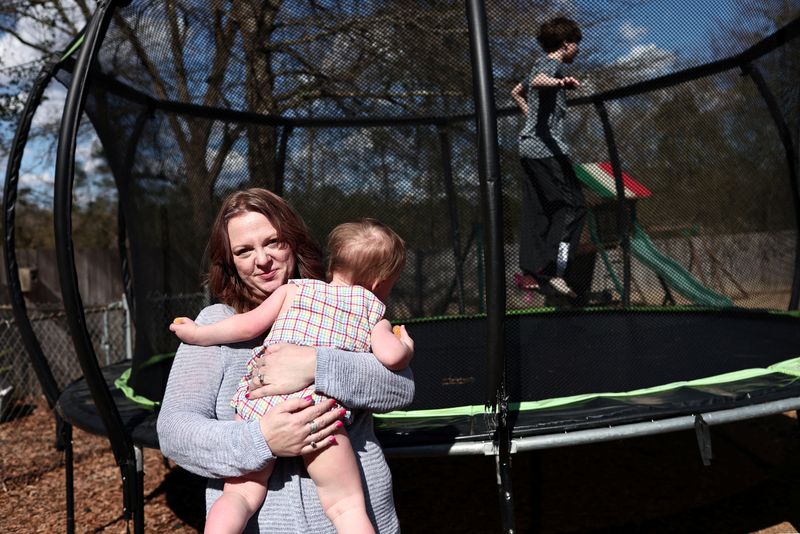By Kimberley Vinnell and Julia Harte
(Reuters) - Three of Kristia Rumbley's embryos created at a clinic became her 7-year-old twins and 2-year-old son, while three have sat in freezers at the University of Alabama at Birmingham for eight years in case she and her husband decide to have another kid.
After Alabama's supreme court ruled on Feb. 16 that embryos were children, leaving it unclear how to legally store, transport and use them, Rumbley, 44, is seeking legal and medical advice on sending her last two embryos out of state as soon as possible.
"We're hoping to move them to another country," the Birmingham mother said in an interview on Friday. "I don't want to risk anybody else making decisions for our embryos."
The University of Alabama at Birmingham was the first of at least three in vitro fertilization providers in the state to halt treatments after the court ruling, saying it feared "our patients and our physicians could be prosecuted criminally or face punitive damages for following the standard of care for IVF treatments."
The Alabama case was brought by three couples seeking damages from a Mobile, Alabama, center storing their frozen embryos after a patient accessed and destroyed them.
The high court ruled that Alabama's constitution clearly considered embryos "unborn children," citing a constitutional amendment that Alabama voters approved in 2018 which granted fetuses full human rights, including the right to life.
Rumbley said she hopes to move her embryos outside the United States because she fears the Alabama court's decision could be appealed to the U.S. Supreme Court and upheld there, throwing the legality of IVF into doubt across the country.
Health advocates have warned that by enshrining the idea of "fetal personhood," the Alabama court ruling could inspire other states to similarly restrict women's reproductive freedom around the United States.
Some IVF patients in other states are already trying to protect their stored embryos from such outside interference.
Amanda Zurawski, one of several plaintiffs suing Texas over its abortion ban after she was denied the procedure following a pregnancy complication, causing her to develop a life-threatening case of sepsis, said on Friday she was moving her embryos out of state for fear Texas would copy Alabama.
"We don't know how far this is going to go. The slope here is so slippery and it's so steep and it's terrifying," she told MSNBC in an interview on Friday, echoing Rumbley's concern that the U.S. Supreme Court could replicate Alabama's court ruling at the national level.
The process of moving embryos out of Alabama is complicated for parents such as Rumbley because the court decision may have created legal risks for transporters if the embryos are damaged during travel, as can happen if they thaw due to accidents or delays.
"If something happened along the way and maybe there was a long plane layover or the (transfer) tank malfunctioned, would I be criminally liable for 'killing a child?'" Rumbley said. "I don't know."
Cryoport Systems, a logistics company that ships embryos and other temperature-controlled material around the world, paused operations in Alabama on Friday, according to The New York Times. Cryoport did not immediately respond to a request for comment.
